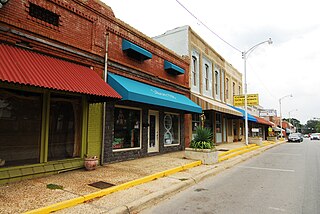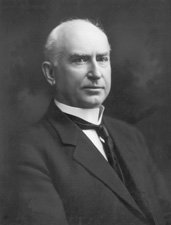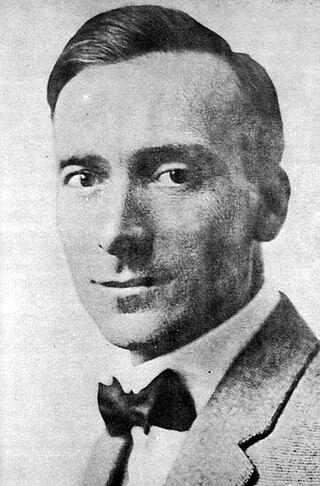Related Research Articles

Grant County is a county in the U.S. state of Arkansas. Its population was 17,958 at the 2020 United States Census. The county seat is Sheridan.

Prattsville is a city in Grant County, Arkansas, United States. The population was 305 at the 2010 census. It is part of the Central Arkansas region.

Sheridan is a city in and the county seat of Grant County, Arkansas, United States. The community is located deep in the forests of the Arkansas Timberlands. It sits at the intersection of US Highways 167 and 270.

James Paul Clarke was a lawyer and politician from the Arkansas Delta during the Progressive Era. He served in public office over a period of almost 30 years, rising from the Arkansas General Assembly to Attorney General of Arkansas and later 18th Governor of Arkansas, ending his career in the United States Senate. In a period of Democratic Party hegemony known as the "Solid South", Clarke blended positions of the budding Populist movement, such as free silver and railroad regulation, with nationalism and his gifted skills as an orator to popularity and electoral success.
More than 1,500 African American officeholders served during the Reconstruction era (1865–1877) and in the years after Reconstruction before white supremacy, disenfranchisement, and the Democratic Party fully reasserted control in Southern states. Historian Canter Brown Jr. noted that in some states, such as Florida, the highest number of African Americans were elected or appointed to offices after the end of Reconstruction in 1877. The following is a partial list of notable African American officeholders from the end of the Civil War until before 1900. Dates listed are the year that a term states or the range of years served if multiple terms.
David Delano Glover was a U.S. Representative from Arkansas's 6th congressional district.

Ezekiel Candler "Took" Gathings was a U.S. Representative from Arkansas, representing Arkansas' First Congressional District from 1939 to 1969. A Democrat and segregationist conservative, Gathings was an ally of Strom Thurmond, and stood against all civil rights legislation. Gathings also chaired the 1952 House Select Committee on Current Pornographic Materials, which advocated for censorship of obscene magazines, books, and comics.

Jordan Edgar Cravens was an American lawyer and politician who served as a U.S. Representative from Arkansas. From 1877 to 1883, he served three terms in Congress, first as an Independent Democrat, then as a Democrat.

William Joshua Driver was an American politician and a U.S. Representative from Arkansas.

William Lee Cazort, Sr. was a lawyer and Democratic politician from Johnson County in the Arkansas River Valley. Winning a seat in the Arkansas House of Representatives in 1915, Cazort became a rising star in Arkansas politics for the next eight years. He was defeated in the 1924 Democratic gubernatorial primary, but served as the fifth and seventh Lieutenant Governor of Arkansas from 1929 to 1931 under Governor Harvey Parnell and from 1933 to 1937 under Governor Junius Marion Futrell. Cazort also sought the Democratic gubernatorial nomination in 1930 and 1936, but failed to gain necessary statewide support and withdrew before the primary both times.
Lawrence Elery Wilson was an American businessman and politician from South Arkansas. He served in the Arkansas House of Representatives from 1927 to 1931. He was elected Lieutenant Governor of Arkansas, serving under Governor Harvey Parnell until he was defeated by Lee Cazort in the Democratic primary.
Cecil Lewis Alexander is a former influential Democratic politician and lobbyist in Arkansas. He was a member of the Arkansas House of Representatives, serving from 1963 to 1979, including a term as Speaker of the House. Alexander later became a lobbyist followed by a tenure as chair of the Arkansas Racing Commission.
Hardin Kimbrough "Kemp" Toney was a Democratic politician from Jefferson County, Arkansas. He represented the county in the Arkansas Senate from 1905 to 1913, and the Arkansas House of Representatives from 1931 to 1949.
Richard A. Dawson was a lawyer and state legislator in Arkansas. He was born in Virginia and his father was a minister. Dawson studied at Oberlin College, and received his law degree from the Old University of Chicago. Dawson practiced law in Pine Bluff, Arkansas and represented the area in the Arkansas General Assembly from 1873 to 1874 and from 1879 to 1881.
Nathan D. Petty was an American lawyer, politician, and judge from New York.
Bloomfield Holmes Minch was an American businessman and politician from New Jersey.
Edmund Waring Wakelee was an American lawyer, politician, and utility executive from New Jersey. He served on the New Jersey General Assembly.
John Newton Sarber was a Republican politician and a U.S. Marshal in Arkansas during the Reconstruction era. He was a member of Arkansas's 1868 Constitutional Convention and served in the Arkansas General Assembly. Sarber was a leader in legislation establishing Arkansas's public school system, the Arkansas Industrial University, and what became Logan County, Arkansas, which was initially named Sarber County over his objections. When unreconstructed Democrats returned to power, they applied political pressure to Sarber and other carpetbaggers. Sarber resigned from the marshals and Sarber County was renamed for James Logan.
References
- ↑ "SOS" (1998), pp. 263–264.
- ↑ "SOS" (1998), pp. 265–267.
- ↑ "SOS" (1998), pp. 261–262.
- ↑ "SOS" (1998), pp. 266–267.
- ↑ "SOS" (1998), pp. 265–266.
- ↑ "SOS" (1998), pp. 268–270.
- ↑ "SOS" (1998), p. 265.
- ↑ "SOS" (1998), p. 270.
- 1 2 3 Herndon, Dallas Tabor (June 28, 1922). "Centennial History of Arkansas". S. J. Clarke publishing Company – via Google Books.
- 1 2 "SOS" (1998) , p. 567.
- ↑ "Robert W Glover". Fort Smith Times. October 23, 1907. p. 4 – via newspapers.com.
- ↑ "ASU-Jonesboro: Act 100 Re-enactment Ceremony". astate.edu. Archived from the original on January 16, 2011. Retrieved July 5, 2011.
- ↑ Glover, Conrad N. (June 28, 1982). "Conrad N. Glover: Memoirs : a Personal Account of the Life, Labors, and Accomplishments of Conrad Nathan Glover". Bogard Press – via Google Books.
- Priest, Sharon (1998). Runnells, Jonathan (ed.). Historical Report of the Arkansas Secretary of State. Office of the Arkansas Secretary of State. OCLC 40157815.